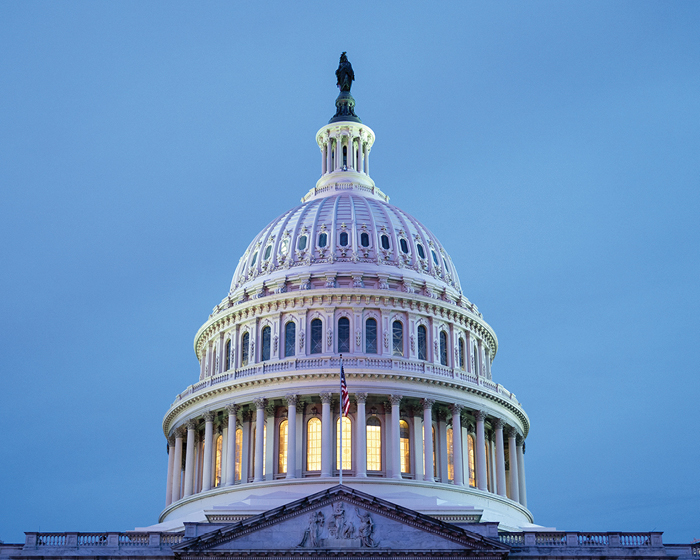Key Takeaways
- Washington is consumed with news that Trump might want to raise taxes on the richest Americans as part of the TCJA extension.
- Even a small increase pits hardline anti-tax conservatives against the new Republican populist brand.
- While increasing tax rates could give taxwriters more revenue to work with, it could ultimately make their job harder.
- The administration's alleged move to strip Harvard University's tax-exempt status could shatter longstanding norms at the IRS, analysts say.
- The Congressional tax-writing committees are expected to start marking up legislation in late May, after other committees make the first move.
If there’s one thing that unites the Republican party despite its many divisions, it’s opposition—if not complete hatred for—raising taxes.
So it’s been a bit of a surprise to see many indications that the White House and President Trump are considering letting the top individual income tax rate rise next year, even as they draw up legislation to stop the rest of the Tax Cuts and Jobs Act expirations from going into force. The rate, set to 37% right now, will rise to 39.6% in 2026 unless Congress changes the current law.
According to news reports, White House officials are exploring whether that slight increase could help pay for some of Trump’s proposals on taxes, such as to exempt all income from tips. Even Sen. John Thune, R-S.D., the Senate Majority Leader, admitted that it was under discussion. Another idea that’s been floated is a new 40% rate on those earning more than $1 million a year.
Not that there hasn’t been opposition. House Speaker Mike Johnson, R-La., dismissed the idea, and it’s provoked a fierce backlash from anti-tax advocates like Grover Norquist.
Is this part of the usual back-and-forth of behind-the-scenes negotiating? Or is it another indication of the Republican Party’s shift to a more populist-focused brand?
We’ll have to see. But there still are a lot of reasons to be skeptical that this could end up in the final bill.
Aside from the overall opposition to tax hikes—”Government has a spending problem, not a revenue problem” is still a GOP mantra—Republican leaders are likely worried about the precedent it could make. Once the door is open, the pressure to raise more from small increases in the tax rate could be irresistible. What’s so special about 40%, why not raise it a few more percentage points? And why raise the individual rate but not the corporate rate, currently and permanently set to 21%?
Lawmakers and taxwriters face a difficult arithmetic problem to devise tax legislation that will appease all of the rowdy Republican caucus and still follow the complex reconciliation rules. Some additional revenue might make that problem easier, but it could also result in final legislation that’s very different from what they would prefer.
And it would make it harder to say “no” to all of the individual members of Congress trying to add additional items to the bill. (Sen. Mike Crapo, R-Idaho, chairman of the Senate Finance Committee, says he’s already received more than 200 such requests.) A hard limit on revenue forces them to prioritize new tax breaks.
One possibility is that while the rates may stay untouched, Republicans could consider other tax policies which would raise revenue from the top of the income tax brackets. They’re already negotiating with suburban moderates on a higher limit for the state and local tax deduction, for instance, that would mainly affect the richest households.
The normal political rules would suggest that Republican traditionalists won’t budge on avoiding tax hikes of any kind. But the process for passing a TJCA extension will be unpredictable until the end—and this is anything but a business-as-usual era for politics.
Other News From the Week
With Harvard Threat, Trump Tries to Bend the I.R.S. to His Will – Andrew Duehren, Alan Rappeport and Russ Buettner, The New York Times ($):
Shuttering Direct File Is a Loss for Taxpayers, Advocates Say – Benjamin Valdez, Tax Notes ($):
Congress Is Prioritizing SALT Break That Few Americans Claim – Mathieu Benhamou and Erik Wasson, Bloomberg News ($)
The data shows that even in these SALT-heavy districts, the average person isn’t much affected by the cap. For all six Republicans who are members of the bipartisan SALT Caucus, the average amount of state, local and property taxes paid on itemized returns is far below $10,000 per year.
Bill To Ax Church Politics Ban Reignites Free-Speech Debate – Stephen K. Cooper, Law360 Tax Authority ($)
Energy and Commerce schedules high-stakes reconciliation markup – Samantha Handler, Laura Weiss and Jake Sherman, Punchbowl News
The GOP leadership is trying to keep momentum going to force the reconciliation bill to the finish line, a strategy that’s worked well so far.
But moving this quickly to markups could leave more time for blowback to politically sensitive pieces of the bill if it doesn’t pass quickly in both chambers. That could be especially challenging when it comes to spending cuts for Medicaid and SNAP; and any revenue raisers in the tax bill.
Make a habit of sustained success.



